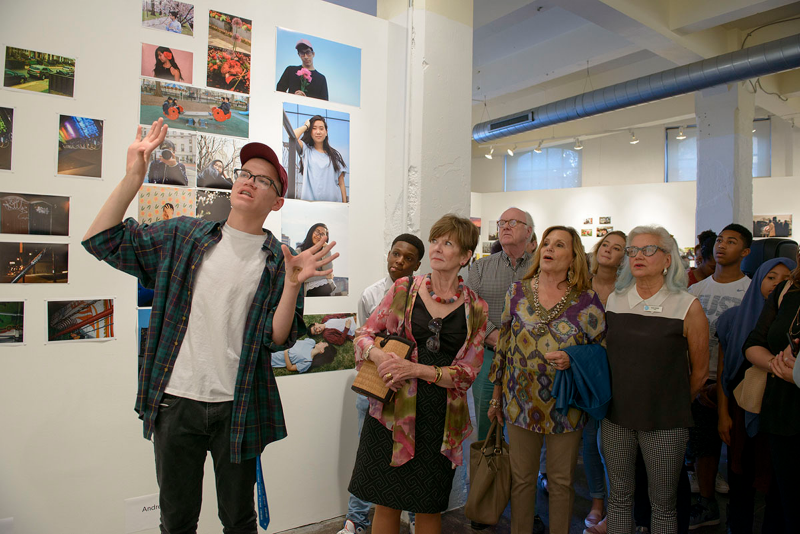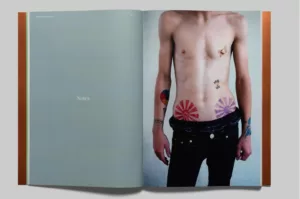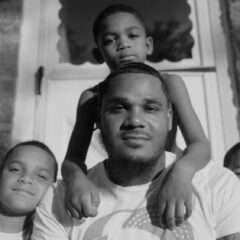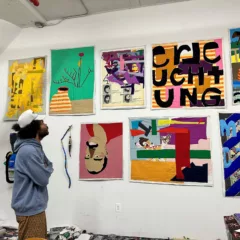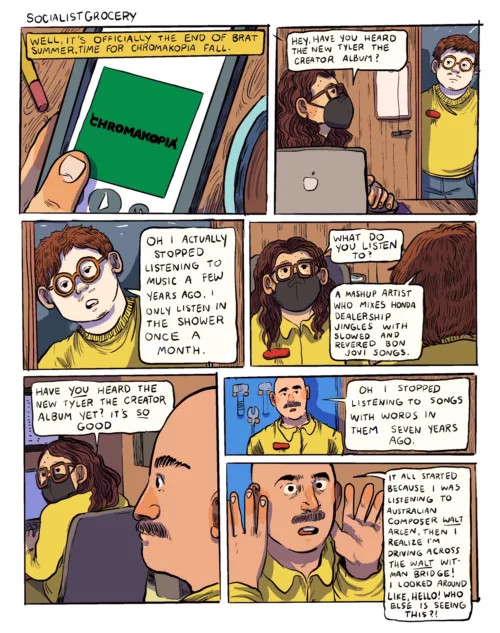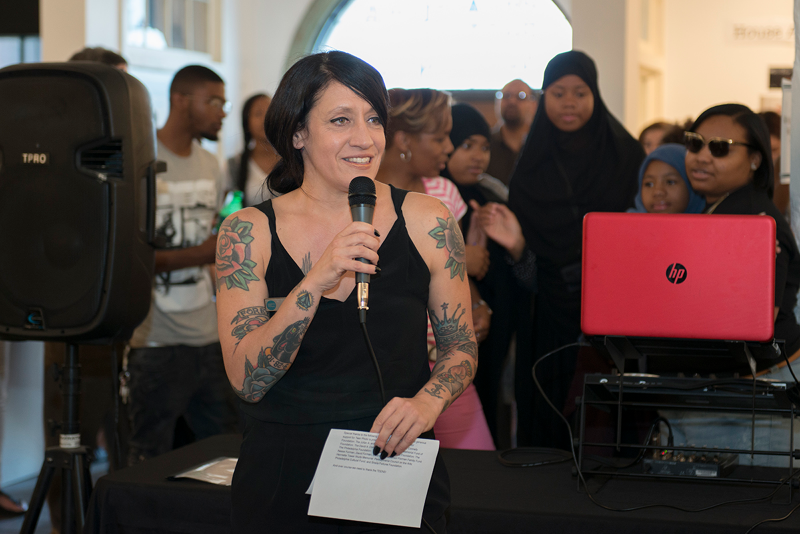
Shortly after Philadelphia Photo Arts Center (PPAC) opened in fall 2009, I interviewed the organization’s founder, Sarah Stolfa for an article for the Philadelphia Daily News. The article introduced an artist with a mission — to bring photography and visual literacy to the community — at a time when Philadelphia’s photo community was bursting with energy and a newfound public audience that was empowered by cellphone and digital technology.
With big hopes and ambitions and a heartfelt commitment to helping people and serving the community, Stolfa began PPAC. I recently caught up with Sarah, now president, CEO, and Artistic Director, about her journey and that of the organization, now 10 years old.
Over the phone and via email, we discuss how PPAC is navigating this difficult time, when arts organizations are reeling financially from being closed; cancelling important events; and switching gears to an online presence to maintain community connections and help artists and art lovers get through this time together.
Roberta Fallon: You are celebrating 10 years of Philadelphia Photo Arts Center. Congratulations!
Sarah Stolfa: It could not have happened without our entire team and community. When we started, I was less focused on developing projects that engaged our community members, but now community engagement is at the core of our thought process. We think about what we do as being inclusive, impactful, and thorough for the community — and for us too. Photography is accessible and an omnipresent force in the community. The arts change lives, but that doesn’t happen overnight.
We didn’t want the conversation around photography to stop when we had to close temporarily due to COVID-19. Most of our services and programs moved online, and we’re finding ways to engage our community through this difficult time. It was rewarding to find ways to shift our core classes, exhibitions, and programs — including The Honickman Foundation Teen Photo Program — to virtual experiences.
We became more ambitious about trying new things, like testing out a weekly virtual speaker series called Thursday Night Photo Talks, which allows the audience to interact with photographers and encourages dialogue and thoughtful discussion. Being virtual has broadened our audience, and we’re able to highlight and engage with photographers from all over the world to participate. It has been an amazing addition to our programming.
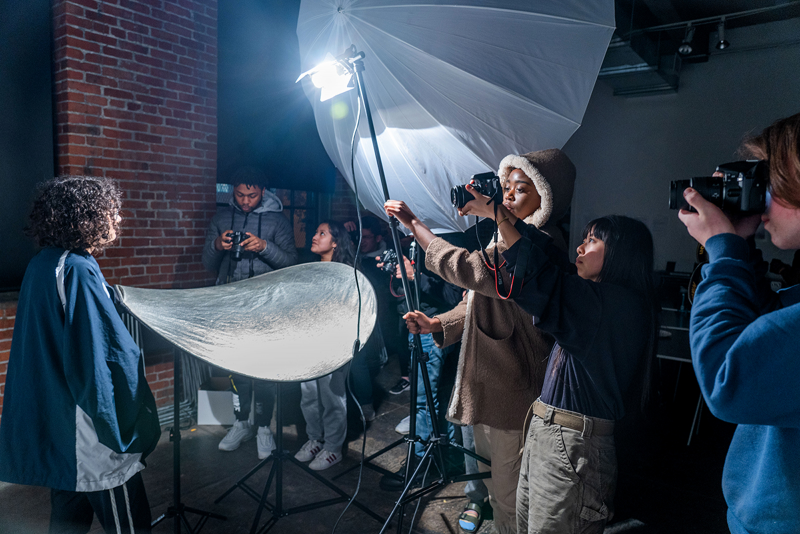
RF: Let’s talk about The Honickman Foundation Teen Photo Program and how that works, in case people don’t know. It’s not a typical afterschool program.
SS: That’s why we’re so proud of it. The Honickman Foundation Teen Photo Program is a free after-school program open to any Philadelphia public high school student. The program runs from September to May, and all students have full access to PPAC’s equipment, a DSLR camera for the school year, materials, and expert teaching staff.
Students create and share images and ideas, build self-confidence, make new friends and develop new technical skills. This year, the program enrolled 65 students, who all have different backgrounds and live in various parts of the city.
The students go on field trips to art exhibitions around the city, create a book of their class’s photos, and because of the current climate, at the end of this year’s program, their work will be shown online.
Not all of the students end up being artists, but they all walk away with a deep understanding of photography and visual literacy.
RF: We haven’t even talked about your classes, workshops, and certificate programs, which have been with you from the beginning. Education is a string through all your programs.
SS: Education has been at the core of our mission since we started. When I was developing the idea of PPAC, I knew I wanted it to be a place that gave artists access to resources, and a place to engage in conversation and education. But if you’re not in the university system, where you learn to use these resources, then the chances are, you don’t know how to use the tools we offer. This means that it is up to us at PPAC to show people how to use them.
The idea that you need an arts education to talk about art isn’t true. The experience of seeing people talking about art allows you to be able to begin talking about it yourself. Our organization works with people with varying photography knowledge and backgrounds. PPAC hosts exhibitions, but we also offer education for beginners and experts. We will always be an exhibiting arts institution, but we also want to be known for the impactful educational classes. We do so without compromising one or the other.
We offer Photo in Schools for younger students, where we send artists to teach in various elementary and middle schools for 10-week residencies. We did this to serve a younger demographic who may have difficulty finding transportation to get them to PPAC.
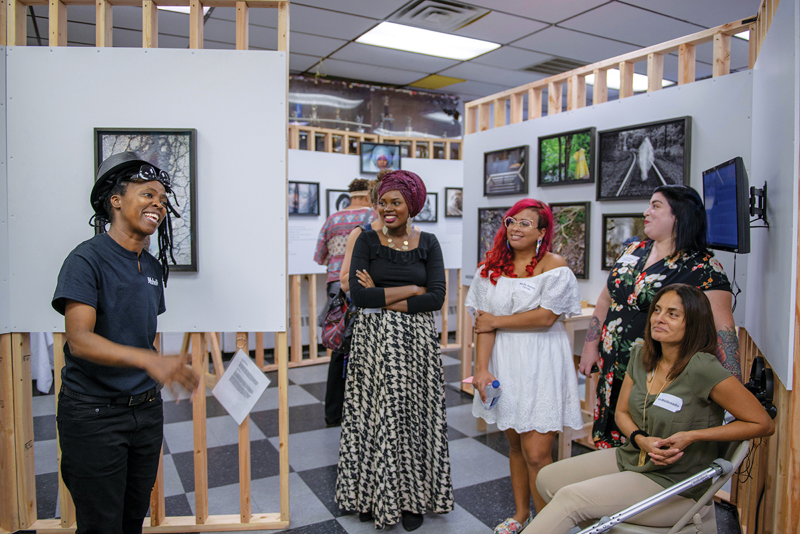
RF: Can you give an example of something you learned from your community?
SS: Every neighborhood and community has different sets of needs and requires different levels of education and outreach. We learn through our projects; we use shared conversation, and we do our best to listen and to react. We’ve taken steps that include board and staff training to ensure PPAC is a safe space for all artists and guests. We listen and reflect when it comes to topics including classism, homophobia, racism, and ageism. We try to think about who hasn’t been represented in our gallery, who hasn’t been invited to the table, and what we can do to change that.
RF: How about your learning. You began PPAC from scratch as an artist. Did you envision this from the beginning?
SS: (Laughs) PPAC is the biggest learning curve of my life! I’m an artist who is continually learning on job.
RF: How are you since PPAC had to temporarily close its doors?
SS: I’m working from home, and my children are with me. We are trying to find that “new normal”. Every day is a new opportunity to think, create the future.
PPAC will reopen. We’re in the beginning discussions of what opening looks like. We talk about how we’ll keep our visitors and staff safe. Our main focus right now is for our team to engage our audience and community members the best we can, through newly created online programming.
Many of the arts and cultural organizations that make Philadelphia so special are in the same predicament. We have high hopes for PPAC. Every time I talk to people it keeps me uplifted, and with the support of our community, we know we will get through this.
